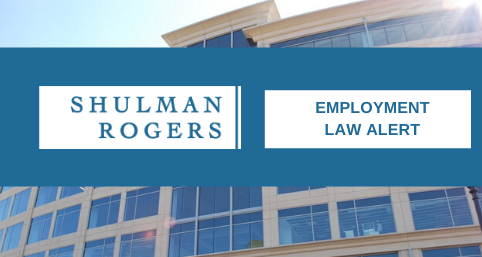
Last month, D.C. Mayor Muriel Bowser enacted the COVID-19 Response Emergency Amendment Act of 2020 (the “Act”). The Act created a new category of eligibility under the D.C. Family and Medical Leave Act (“DCFMLA”), permitting employees to take unpaid “declaration of emergency” leave if they are unable to work as a result of the circumstances giving rise to the COVID-19 public health emergency. Qualifying circumstances are a recommendation that the employee self-quarantine or self-isolate issued by the Mayor, Department of Health, any other District or federal Agency, a medical professional or the declaration of a public health emergency. The Act applies to all employers without regard to size and the leave is available to all employees irrespective of their tenure with their employer.
More recently, Mayor Bowser signed the COVID-19 Response Supplemental Emergency Amendment Act of 2020 (the “Supplemental Act”) expanding the provisions of the Act. The Supplemental Act provides employees up to two additional weeks of paid leave for any reason employees may take leave under the federal Families First Coronavirus Response Act (“FFCRA”). For additional details on leave eligibility under the FFCRA, see our prior post here. The Supplemental Act applies to employers with 50-499 employees, and eligible employees are those who have been employed at least 15 days. Notably, the Supplemental Act automatically exempts “health care providers” from providing this paid leave to any of their employees (as compared to the federal FFCRA that allows employers to exempt specific employees who meet the definition of “health care provider”). This paid leave is in addition to any other leave available to the employee under federal or D.C. law or the employer’s policies, and employers may require employees to exhaust any other available sources of leave prior to utilizing this leave. Employers may require that employees provide 48 hours notice of their intent to use paid leave under the Supplemental Act, and employees who use three or more consecutive days of paid leave may be required to provide certification. However, the certification cannot be required until one week after the employee returns to work, and employers that do not contribute payments towards a health insurance plan on behalf of the employee are not permitted to require certification at all. Another important way in which the Supplemental Act is distinguishable from the FFCRA is that it does not provide for tax credits to employers. In other words—unlike the FFCRA, employers are responsible for funding the new DC leave.
Both the Act and the Supplemental Act are effective as of March 17, 2020, and shall remain in effect for the duration of the Mayor’s declaration of a public emergency.
Shulman Rogers attorneys are available to discuss any questions you have regarding employers’ rights and obligations under this new D.C. law.
The contents of this Alert are for informational purposes only and do not constitute legal advice. If you have any questions about this Alert, please contact the Shulman Rogers attorney with whom you regularly work or a member of the Shulman Rogers Employment and Labor Law Group.
Stay up to date with all the latest news and events.